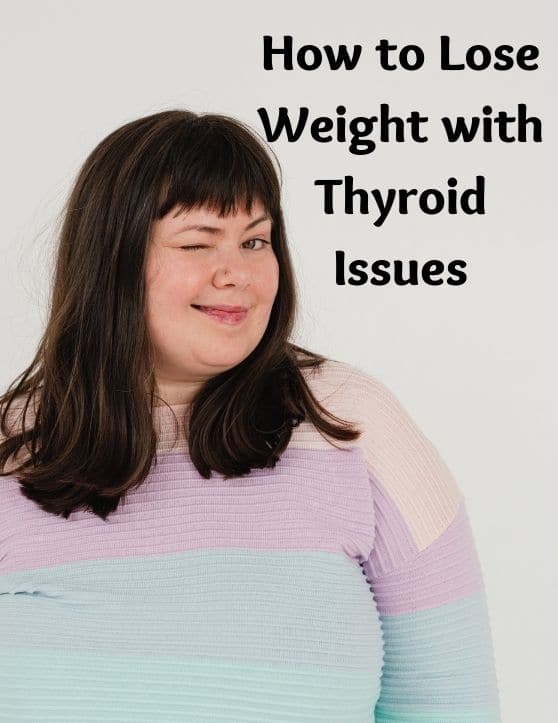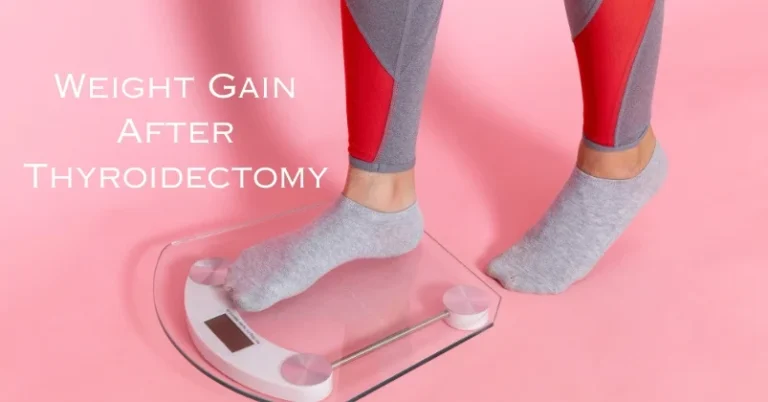How to Lose Weight with Thyroid Issues
For those with hypothyroidism or no thyroid from Radioactive Iodine (RAI) treatment/surgery, losing weight can become a frustrating battle. If you are asking yourself how to lose weight with thyroid issues, the good news is that is it may not be as impossible as it may feel. There are apps that will not only guide you to success, but also teach you how to permanently maintain your new bodyweight.
Most advice begins with a list of things you should do and what to avoid. While this is helpful in the short term and can lead to good results, it often fails because it’s not sustainable. People end up experiencing a “yo-yo” effect and end up in a worse situation than where they started.
The challenge resides in not only taking off weight and making healthier choices but making it your new lifestyle. Weight gain and excess weight can be caused by multiple factors, ranging from the physical to the emotional. Plans that fail to recognize the root cause(s) of weight loss fail because they are only tackling the symptom, not the source.
In implementing any weight loss program, it is important not to just know what to eat, how to have balanced meals, and how to count calories, but to also understand the psychology behind it as well. This sets people up for the greatest success because weight loss truly begins mentally before it manifests physically.
How Does This Aid Weight Loss If There is a Medical Cause?

Hypothyroidism effects the endocrine system, wherein the thyroid gland doesn’t generate enough thyroid hormones. The result of an underactive thyroid is a poor ability to tolerate colder temperatures, constipation, feeling tired, depression, slow heart rate, and weight gain.
Diet
Experts say there is no specific best diet to treat a thyroid issue. They encourage thyroid patients to make a significant change in their eating habits to successfully lose weight while dealing with either an underactive thyroid or an overactive thyroid. Yet, when it comes to what diet to incorporate, it is dependant to the person’s food sensitivities, absorption of nutrients, the individual’s physiology, and how the body stores, burns, and metabolizes carbohydrates.
In terms of weight loss, they offer the following advice for those who have a thyroid disorder:
- Reducing overall calories by investing in a calorie calculating app.
- Increasing fiber, as it makes you feel fuller for longer.
- Cutting down on sugars and carbohydrates by incorporating a low-glycemic diet.
- Using an anti-inflammatory diet.
- Going on the Paleo diet, which can reduce inflammation.
- Changing the times that you eat by intermittent fasting.
- Being tested for food allergies.
- Incorporating a gluten-free diet.
It is also recommended to remain hydrated, as it allows the metabolism to work efficiently. Water helps curb appetite, gets rid of bloating/retaining water, and improves digestion.
Exercise
For some people with a thyroid problem, calorie restrictions aren’t enough to lose weight. Since hypothyroidism can decrease a person’s metabolism, it means fewer calories are required. This generates frustration in those struggling with this diagnosis because it is increasingly difficult to cut enough calories to lose weight.
People end up feeling like they are doing everything right but not seeing results. This is where most people resign themselves to failure and give up. They begin to see things as hopeless.
One solution is raising the metabolism by exercise, which helps to burn fat/calories, balance weight loss hormones (leptin), and reduce blood sugar levels.
For thyroid patients, it is recommended that they do a muscle building and muscle activation program entitled “T-Tapp.” Others find that Pilates, weightlifting, and walking work.
Sleep
Studies indicate that being sleep-deprived slows down the metabolism and leads to obesity. It also makes you increasingly vulnerable to diabetes and heart disease.
While all these tips are great in terms of losing weight with thyroid issues, there are two ways that you can approach things: on your own determination, or with help. Yet, when looking for help, consider what is truly going to help you in your journey, and what is going to be sustainable for your lifestyle long term.
How Do Apps Benefit Thyroid Patients?
There are two good apps on the market: Healthi (formerly iTtrackBites) and Noom. These apps are designed to help you lose weight and keep it off. However, they tackle things differently.
Healthi provides the following:
- Macronutrient tracking
- Recipes
- Activity and food tracking
- Over 1 million different brands and foods to track
- A premium plan for weight loss
- Fitbit activity tracking
This program will help you keep track of what you are eating in terms of “bites.” Each different food has a designated number of bites attached to it. It will also help you plan out your weekly meals, provide recipes, and use a bar code scanner for your food. It also offers the comfort of community support.
This app will help you by breaking down the components of food in your diet and plan your meals so they are more well-balanced. The community of support offers encouragement and help for those who need it. Additionally, it has a team of coaches to help you on your journey to ensure that you meet your weight loss goals.
There are also six plans available to choose from, along with which one would best suit you. It will help you find out how many calories you should consume to lose weight. It will also help you track exercise and activity.
Overall, it is a good, basic plan.
Noom, though, is very different. It does all of the things that Healthi does. Foods are categorized into three groups: green, yellow, and red. Each section has an amount that you should eat each day. This is calculated when you enter in your food choice. It also teaches you to add in things like sauces used, oil, etc., because all of it combined makes up a calorie count.
Many people gain weight because they don’t know exactly how many calories they are eating.
Noom calculates how many calories you should consume and your exercise level. It provides you with a pedometer for walking and encourages you to do so on a gradual program. They have recipes, coaching, daily weigh-ins, and community support.
Yet what makes Noom special is its sustainability. It asks personal questions and then tailors your plan according to your health. Furthermore, it provides 10 minutes of daily tips and uncovers the psychology behind eating choices. They encourage users to not think of it as a diet, but as a lifestyle change. This is what makes it sustainable long term.
They also tell you that no foods are off-limits and encourage moderation instead.
While it may feel impossible for someone with thyroid issues to lose weight, it is not impossible. You can either do it on your own or with some assistance. However, make sure whatever you choose isn’t a chore and is sustainable for the long term. Good health is precious.








